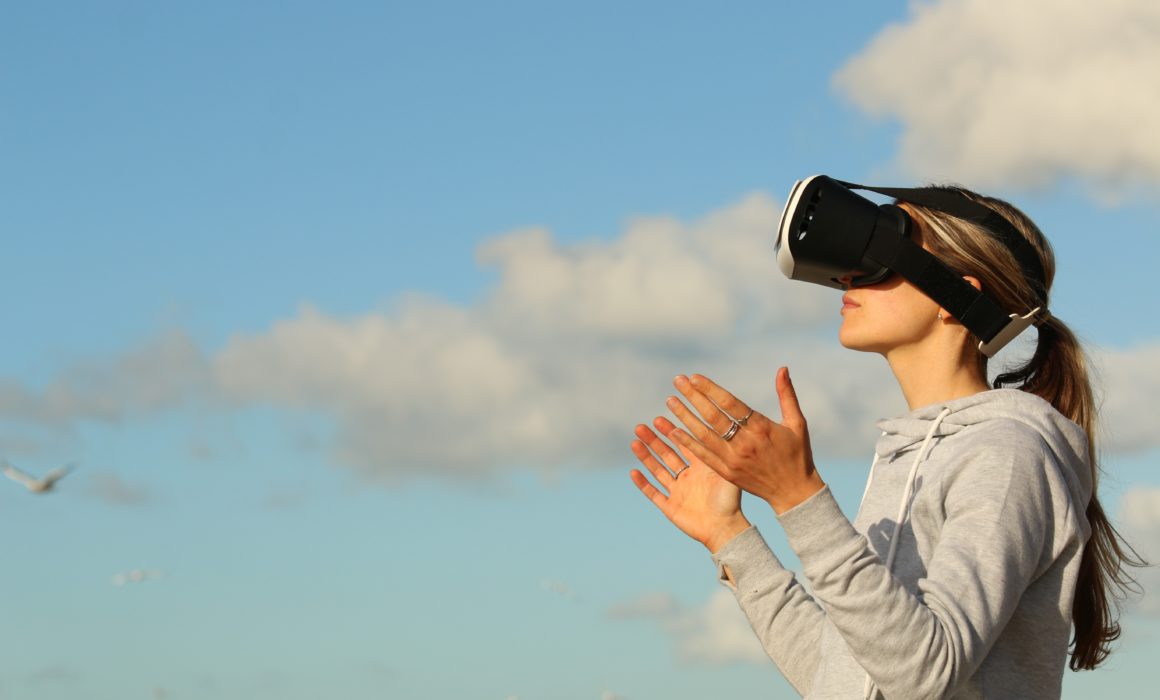Awe In VR
Virtual reality offers a powerful, novel method by which awe can be experienced in almost any setting. Creating an authentic sense of presence among vast and complex stimuli, VR is reported to be awe-inspiring by users alike, from first-timers to VR fans who regularly play VR games, socialize, or do business in VR. While research identifies that awe is one of the most powerful emotions we feel, its current therapeutic utility is limited by the practical problem of bringing awe-inspiring environments into therapy settings.
VR, however, has the capacity to bring us into vast and immersive environments within seconds. It can therefore reactivate the transformative utility of awe by presenting carefully crafted 3D environments and lifelike social simulations. Awe is a reaction to stimuli characterized by two features: perceptual vastness, and the need for cognitive accommodation. In other words, awe tends to be evoked by stimuli that are large, either physically, or by their cognitive implication, and which challenge one’s existing understanding of the world. It is an emotion that we feel when we see a breathtaking landscape or listen to rich and moving music.
The Therapeutic Power of Awe
The psychological effects of awe have important implications for promoting well-being, including dampening the body’s stress responses, and drastically changing how people process information. After experiencing awe, people have a more communal sense of self and adopt more inclusive values. Likewise, experiences of awe increase openness to experience, reduce the need for cognitive closure and reportedly challenge one’s worldview. So, when multiple people are experiencing awe together, the foundations for community, care, and compassion are laid out immediately.
Inducing awe during therapy sessions in VR could also help people open up and be more comfortable, shifting their preconceived notions about therapy when there is resistance to treatment or healing. VR therapy has the power to change what we see, and the emotional and cognitive state that we find ourselves in. However, unlike any other therapy, it offers clients and therapists much more immersion and control. It can therefore be used as a therapeutic tool for psychological intervention at home, in workplaces, and in clinical settings within sessions starting from a mere 3 minutes.
Foretell Reality
Foretell Reality leverages the power of virtual reality to create environments and experiences that induce intimacy, and a shared sense of awe. From sitting around a campfire and playing the guitar, to watching the rain fall and drinking hot cocoa in a cozy room, users can meet in different settings and discuss matters that are close to their hearts. But it does not stop there, you can travel across the world, see 360 videos of places you have never been, and interact with the virtual world in a creative and collaborative way.
To read more about awe in VR and see experimental results, click here.
References:
ASU News. (2019, January 3). Research that takes your breath away: The impact of awe. ASU
News. Retrieved November 25, 2021, from https://news.asu.edu/20190103-research-takes-yourbreath-away-impact-awe.
Bai, Y., Maruskin, L. A., Chen, S., Gordon, A. M., Stellar, J. E., McNeil, G. D., … & Keltner, D.
(2017). Awe, the diminished self, and collective engagement: Universals and cultural variations
in the small self. Journal of personality and social psychology, 113, 185.
Campos, B., Shiota, M. N., Keltner, D., Gonzaga, G. C., & Goetz, J. L. (2013). What is shared,
what is different? Core relational themes and expressive displays of eight positive
emotions. Cognition & emotion, 27(1), 37-52.
Chirico, A., Yaden, D. B., Riva, G., & Gaggioli, A. (2016). The potential of virtual reality for the
investigation of awe. Frontiers in Psychology, 7.
https://doi.org/10.3389/fpsyg.2016.01766
Keltner, D., & Haidt, J. (2003). Approaching awe, a moral, spiritual, and aesthetic emotion.
Cognition and Emotion, 17, 297–314. https://doi.org/10.1080/02699930302297
Lindner, P. (2020). Better, virtually: The past, present, and future of Virtual Reality Cognitive
Behavior therapy. International Journal of Cognitive Therapy, 14, 23–46.
https://doi.org/10.1007/s41811-020-00090-714
Shiota, M. N., Keltner, D., & Mossman, A. (2007). The nature of awe: Elicitors, appraisals, and
effects on self-concept. Cognition and Emotion, 21, 944–963.









Recent Comments